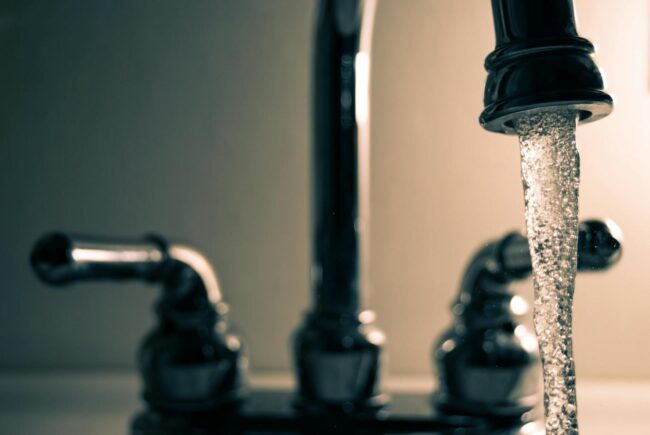
Plumbing problems can be frustrating and expensive to fix. A small leak or clog can quickly turn into a big issue if not handled in time. Many homeowners deal with plumbing troubles at some point, whether it’s a slow drain, a leaking faucet, or a burst pipe. The good news is that you can avoid most of these issues with simple maintenance. By taking a few easy steps, you can keep your plumbing system in good shape and save money on costly repairs.
If you live in Gaithersburg or any other city, maintaining your plumbing is essential. Whether you rent or own your home, keeping up with regular plumbing care will help prevent major problems. In this blog, we will share simple and practical ways to maintain your home’s plumbing system and avoid unnecessary repairs.
Check for Leaks Regularly
Leaks can waste a lot of water and increase your utility bill. Even a small drip can lead to higher costs over time. Checking for leaks in faucets, under sinks, and around appliances is an easy way to catch problems early. If you notice a leak, fix it as soon as possible. Ignoring leaks can cause water damage, which may lead to mold and expensive repairs.
Sometimes, leaks occur in places that are hard to see. Pay attention to signs like water stains on walls or ceilings, musty odors, or an unexplained increase in your water bill. Regularly inspecting pipes and fixtures can help you spot small problems before they turn into big ones.
Keep Drains Clean and Clear
Clogged drains can cause backups and slow water flow. To prevent this, avoid putting grease, coffee grounds, or food scraps down the kitchen sink. In the bathroom, hair and soap scum are the biggest causes of clogs. Using a drain cover can help stop hair from going down the drain and causing blockages. Running hot water after using the sink can also help keep pipes clear.
When it comes to drain cleaning Gaithersburg has many professional cleaning services to help keep your pipes in top condition. They can remove buildup and prevent clogs before they cause serious issues, saving you money in the long run.
Be Careful With What You Flush
Toilets are designed to handle only human waste and toilet paper. Flushing items like wipes, paper towels, feminine hygiene products, and cotton swabs can cause serious clogs. Even products labeled as “flushable” do not break down easily and can block pipes. A clogged toilet can lead to messy overflows and expensive plumbing repairs.
If you have kids, teach them what should and should not go down the toilet. Many plumbing issues start because children flush toys or other small objects. Keep a wastebasket in the bathroom for non-flushable items so they don’t end up in the toilet. Taking these small steps can help you avoid blockages and plumbing emergencies.
Watch Your Water Pressure
Water pressure that is too high can strain your pipes and cause leaks. If you notice strong water flow from faucets or showers, it might be a sign of high pressure. Over time, this can weaken pipes and lead to bursts. A pressure gauge can help you check your home’s water pressure. Ideally, it should be between 40-60 psi (pounds per square inch).
If your water pressure is too high, a pressure-reducing valve (PRV) can help regulate it. Most homes already have one, but older homes may not. Installing a PRV can protect your plumbing system and extend the lifespan of pipes and fixtures. If you are unsure about your home’s water pressure, a plumber can check and adjust it for you.
Insulate Pipes in Cold Weather
Freezing temperatures can cause pipes to burst. When water inside pipes freezes, it expands, which can lead to cracks and leaks. If you live in an area with cold winters, insulating your pipes is a simple way to prevent this. Focus on exposed pipes in basements, garages, and under sinks, as these are more vulnerable to freezing.
Leaving cabinet doors open on very cold nights can also help warm air reach pipes under sinks. Letting faucets drip slightly during freezing temperatures can keep water moving and reduce the risk of freezing. Taking these precautions can save you from costly water damage caused by burst pipes.
Flush Your Water Heater
Over time, sediment builds up in water heaters, reducing efficiency. If you notice your hot water taking longer to heat or running out quickly, sediment buildup may be the reason. Flushing your water heater once a year removes this buildup and helps it run more efficiently. This can also extend its lifespan and prevent unexpected breakdowns.
To flush your water heater, turn it off, attach a hose to the drain valve, and let the water run into a bucket until it appears clear. If you are unsure how to do this, a plumber can help. Regular maintenance keeps your water heater in good shape and ensures you always have hot water when you need it.
Use Your Garbage Disposal Properly
Garbage disposals help break down food scraps, but they are not meant for everything. Avoid putting hard items like bones, fruit pits, or eggshells into the disposal. Fibrous foods like celery and potato peels can also cause problems by wrapping around the blades. Running cold water while using the disposal helps flush food particles through the system.
If your garbage disposal starts to smell, grinding ice cubes and citrus peels can help clean the blades and remove odors. If the disposal jams or stops working, try pressing the reset button on the bottom before calling a plumber. Using your garbage disposal correctly will help prevent blockages and keep it running smoothly.
In conclusion, keeping your plumbing system in good condition does not have to be complicated. Simple habits like checking for leaks, being careful with drains, and monitoring water pressure can prevent major problems. Regular maintenance can save you time, money, and stress in the long run.
